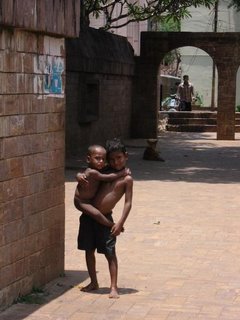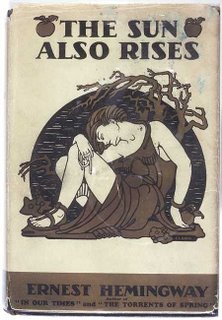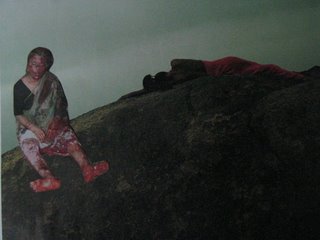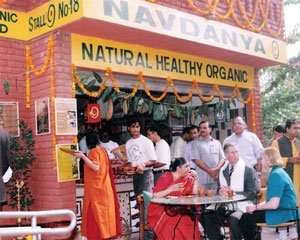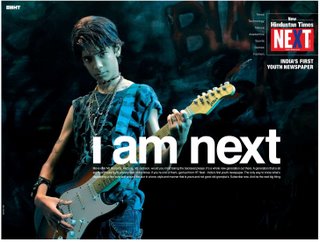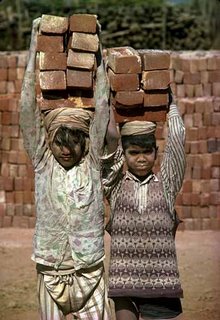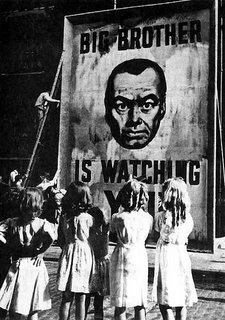 A House for Mr Biswas (by V.S. Naipaul) was good, but perhaps too epic. The detailed explanations, the belabored words of everyday existence...a good effect sometimes, as in A Suitable Boy (Vikram Seth), but here it seemed too much musing, too little action. I would give a more cogent review, but I have the bubonic plague, or something like it, so it's time for some quotey quotes:
A House for Mr Biswas (by V.S. Naipaul) was good, but perhaps too epic. The detailed explanations, the belabored words of everyday existence...a good effect sometimes, as in A Suitable Boy (Vikram Seth), but here it seemed too much musing, too little action. I would give a more cogent review, but I have the bubonic plague, or something like it, so it's time for some quotey quotes:Time would never be dismissed again. No action would merely lead to another; every action was a part of his life which could not be recalled; therefore thought had to be given to every action: the opening of a matchbox, the striking of a match. Slowly, then, as though unused to his lim bs, and concentrating hard, he had his evening bath, cooked his meal, ate it, washed up, and settled down in his rocking chair to pass -- no, to use, to enjoy, to live -- the evening. The house was unimportant. The evening in this room, was all that mattered. (I think this illustrates quite well the point I want to make; it is certainly elegant writing, and a nice excerpt, but when an entire book reflects this same tone over 600 pages, it can get old.)
'In a few years you will look back on this and laugh,' Mr Biswas said. 'You did your best. And no true effort is ever wasted. Remember that.'
'What about you?' Anand said.
And though they slept on the same bed, neither spoke to the other for the rest of the evening.
Living had always been a preparation, a waiting. And so the years had passed; and now there was nothing to wait for.
 Also breezed through Jack London's Call of the Wild, which I probably should have read at some point in my elementary education (I mean, come on! American classic, folks!).
Also breezed through Jack London's Call of the Wild, which I probably should have read at some point in my elementary education (I mean, come on! American classic, folks!).In contrast to Naipaul, this was a taut little story that moved quickly and refused to imbue everyday events with undue emotion -- and yet managed to be moving and meaningful. At its heart, Call of the Wild is just a great story of nature, of the conflict between man, beast, and circumstance.
I suppose I'm a sucker for dog stories, too, but this was about more than a dog -- if I were still in college, I would probably pfaff about how Buck's narrative is an allegory for modern life, anomie, brutality, enforced selfishness. But I know that would be pushing it, and besides, my energy is fading fast. So I'll leave you with some lively prose; the words aren't special or complex, but there is an ineffable movement to them when strung together.
There is an ecstasy that marks the summit of life, and beyond which life cannot rise. And such is the paradox of living, this ecstasy comes when one is most alive, and it comes as a complete forgetfulness that one is alive.
He was older than the days he had seen and the breaths he had drawn. He linked the past with the present, and the eternity behind him throbbed through him in a mighty rhythm to which he swayed as the tides and seasons swayed.



 ... comes the case of "Hitler's Cross," a new restaurant in Mumbai.
... comes the case of "Hitler's Cross," a new restaurant in Mumbai.